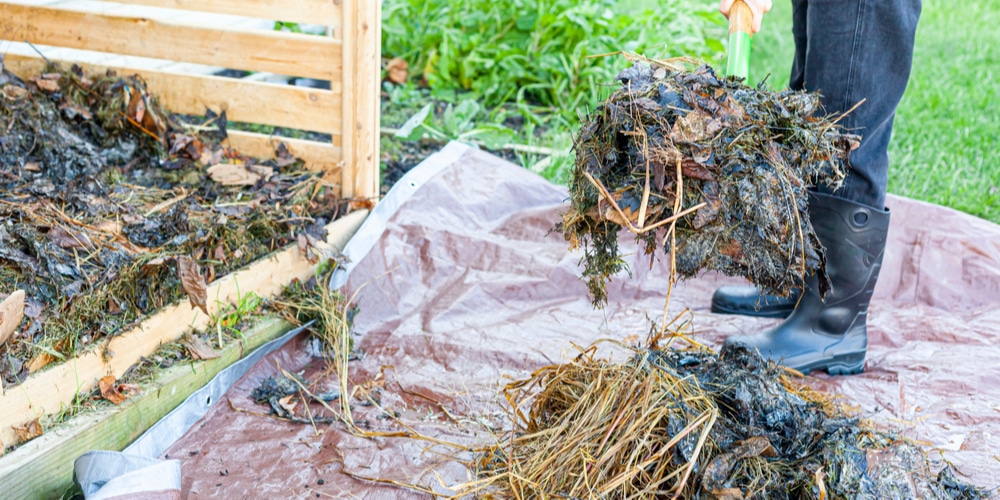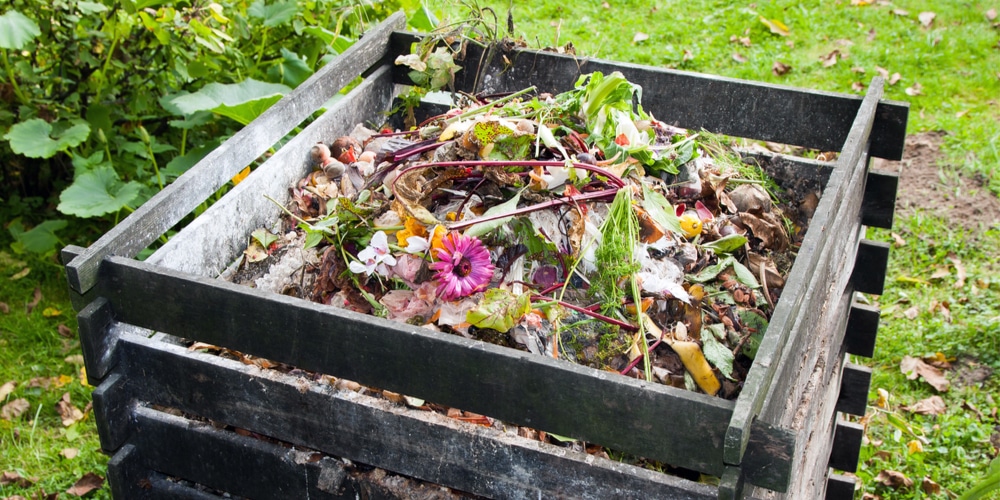Composting is great for dealing with food scraps while helping your garden thrive. With compost, you can make fertilizer to help enrich your soil. Composting can be complicated, though.
Sometimes things go wrong, like animals and insects getting into it. You may find mosquitoes around your compost bin, but is that normal? Is it supposed to attract mosquitoes? Read on to find out what you can do about a compost bin that attracts mosquitoes.
Does Compost Attract Mosquitoes?
It shouldn’t, but it can.
Many pests can get into your compost bin. Some are beneficial, while others can cause harm to the composting process. A pile that retains too much water will attract mosquitoes. They’re common in areas with standing water because water offers them hydration and a place to lay their eggs, exacerbating the problem by causing more mosquitoes to live in the area.
An incorrectly cared for compost pile will attract mosquitoes, but if you take proper care of it and don’t allow any standing water to form, you shouldn’t have to deal with mosquitoes.
What Other Pests Does Compost Attract?
It’s common to find bugs in your compost pile. They are typically beneficial or harmless toward the pile.
Worms, slugs, and isopods are great for a compost pile. These help speed up the composting process and benefit your pile.
Your compost bin may also attract flying insects like bees or wasps. They aren’t directly harmful to your pile, but they can cause issues for you while you’re near the compost pile.
Pests that are an issue are mice, rats, raccoons, and other animals that can carry disease. These pests may be attracted to your compost pile if there are easily-available food scraps in the pile and good shelter.
What Do I Do If My Compost Attracts Mosquitoes?
There are a few solutions to your mosquito problem. One good thing to try is to change the moisture level. When the pile gets too wet, this can make a suitable environment for mosquitoes. If you work to keep it drier but not dry, your mosquito problem may go away on its own. It should be damp but not wet.
You can try turning your compost more often, too. Turning your pile allows the oxygen to circulate and touch everything in a pile. Doing this may help with a too-moist pile by distributing the water better.
You can also shred things you add to the pile before adding them. Shredding scraps speeds up the composting process because a bunch of small scraps are breaking down at once instead of one large piece. This could also help with other pests like mice and rats.
Another solution is to grow plants that repel mosquitos such as lemon balm beside your compost.
What Do I Do About Other Pests?
While you can leave beneficial bugs, you may want to ward off bees and wasps. If bees make a nest in your compost bin, you should call a beekeeper who can safely remove them. This will keep you and the bees safe while lowering the chance you damage their nest upon removal.
You can add fresh lawn clippings over any fruits and vegetables you add to the compost bin. Bees and wasps like fruit. If wasps nest in your compost bin, you should call a professional to remove the nest if you don’t know how to do it yourself.
If you have rats, mice, or raccoons, you may need to invest in a different compost setup if you can’t get them to leave by burying food scraps or not using food scraps in your compost bin whatsoever.
Keep Your Compost Healthy!
While compost can attract mosquitoes, it is very simple to remedy the situation. In no time, your compost pile will be back to normal. Remember, you can always call a professional if nothing helps the problem.

